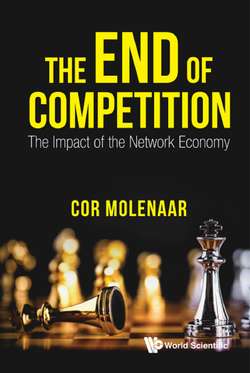Читать книгу End Of Competition, The: The Impact Of The Network Economy - C N A Molenaar - Страница 14
На сайте Литреса книга снята с продажи.
Do One’s Own Restrictions Lead to a Tunnel Vision in the Decision-Making?
ОглавлениеManufacturers are able to supply their goods directly, without calling upon further links in the chain, but are afraid of the consequences. The aggrieved links in the chain might perhaps retaliate by no longer selling or recommending the products (short-term consequences). The power in the chain holds back the changes through fear. That is, until other providers come along, often from other markets or from abroad, who do sell directly, often at lower prices and with services that appeal to the buyer (24/7, return guarantee). Then finally action is taken, and hopefully on time. But the many bankruptcies and takeovers give pause for concern. So how does it get to this situation? It is, of course, to do with this fear of leaving one’s comfort zone, as well as the fear of the consequences of change to the traditional structure. But it can also be due to a reluctance to act or the strict conditions of doing business such as profitability level, stock market prices or company bonuses.
But there are also other principles that come to play here, such as the consensus approach (trying to keep everyone happy, consensus decisionmaking being typical in the Netherlands), as well as one’s own knowledge and approach as we will see later (applying what we have learned during our studies and deciding on the basis of our own experience). Traditional businesses and decision-makers are stuck to the constraints of the past which slows down decision-making. When making decisions, one calls upon one’s personal knowledge and experience, while the developments simply continue. In addition, information is usually interpreted from the perspective of one’s own field of expertise or vision (no lateral thinking). For a long time, I kept on hearing that Amazon was not a threat; it was, after all, not making any profit. This reveals a complete lack of knowledge of Amazon’s business model, which was not based upon short-term profitability, but on long-term value creation. And the same can be said for Bol.com. As far as these naive decision-makers were concerned, it was not necessary to study the developments, nor to take any action, as these new entrants would not last long.
